Filter by
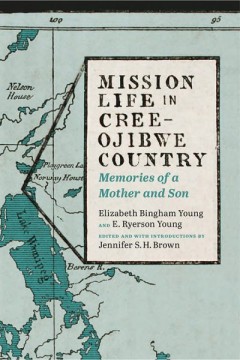
Mission Life in Cree-Ojibwe Country Memories of a Mother and Son
In May of 1868, Elizabeth Bingham Young and her new husband, Egerton Ryerson Young, began a long journey from Hamilton, Ontario, to the Methodist mission of Rossville. For the next eight years, Elizabeth supported her husband’s work at two mission houses, Norway House and then Berens River. Unprepared for the difficult conditions and the “eight months long” winter, and unimpressed with �…
- Edition
- Jennifer S. H. Brown
- ISBN/ISSN
- 9781771990035.01
- Collation
- -
- Series Title
- Our Lives: Diary, Memoir, and Letters
- Call Number
- 336 pages
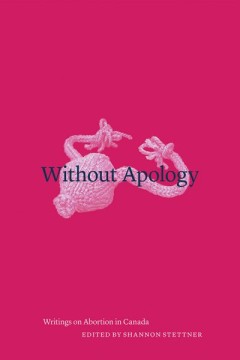
Without Apology
Without Apology seeks to address this issue by gathering the voices of activists, feminists, and scholars as well as abortion providers and clinic support staff alongside the stories of women whose experience with abortion is more personal. With the particular aim of moving beyond the polarizing rhetoric that has characterized the issue of abortion and reproductive justice for so long, Without …
- Edition
- -
- ISBN/ISSN
- 9781771991599.01
- Collation
- -
- Series Title
- -
- Call Number
- 366 pages
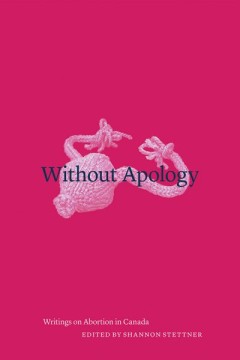
Without Apology Writings on Abortion in Canada
With contributions by Aalya Ahmad, Tracey L. Anderson, Jane Cawthorne, Peggy Cooke, Shannon Dea, Carolyn Egan, Linda Gardner, Laura Gillespie, Sterling Haynes, E.K. Hornbeck, Clarissa Hurley, “Dr. James”, H. Bindy K. Kang, Kristen, Natalie Lochwin, Mackenzie, Colleen MacQuarrie, Ruth Miller, Judith Mintz, Erin Mullan, Jen Rinaldi, Sadie Roberts, Martha Solomon, Shannon Stettner, Karen Stote…
- Edition
- -
- ISBN/ISSN
- 9781771991599.01
- Collation
- -
- Series Title
- -
- Call Number
- 366 pages

Without Apology Writings on Abortion in Canada
With contributions by Aalya Ahmad, Tracey L. Anderson, Jane Cawthorne, Peggy Cooke, Shannon Dea, Carolyn Egan, Linda Gardner, Laura Gillespie, Sterling Haynes, E.K. Hornbeck, Clarissa Hurley, “Dr. James”, H. Bindy K. Kang, Kristen, Natalie Lochwin, Mackenzie, Colleen MacQuarrie, Ruth Miller, Judith Mintz, Erin Mullan, Jen Rinaldi, Sadie Roberts, Martha Solomon, Shannon Stettner, Karen Stote…
- Edition
- -
- ISBN/ISSN
- 9781771991599.01
- Collation
- -
- Series Title
- -
- Call Number
- 366 pages
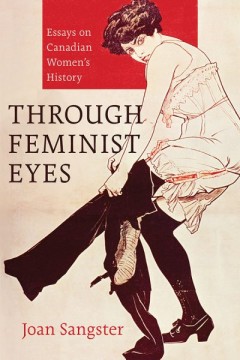
Through Feminist Eyes Essays on Canadian Women’s History
Approaching her subject matter from an array of interpretive frameworks that engage questions of gender, class, colonialism, politics, and labour, Sangster explores the lived experience of women in a variety of specific historical settings. In so doing, she sheds new light on issues that have sparked much debate among feminist historians and offers a thoughtful overview of the evolution of wome…
- Edition
- -
- ISBN/ISSN
- 978-1-926836-18-8
- Collation
- -
- Series Title
- -
- Call Number
- 440 pages
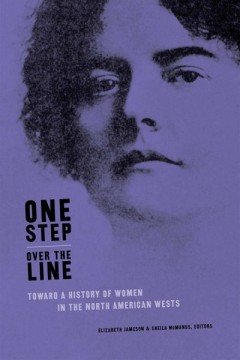
One Step Over the Line Toward a History of Women in the North American Wests
Sixteen essays arising from the “Unsettled Pasts: Reconceiving the West through Women’s History” conference at the University of Calgary comprise this foundational text. One Step Over the Line is not only the map; it is the bridgework to span the transnational, gendered divide—a must for readers who have been searching for a wide, inclusive perspective on our western past.
- Edition
- -
- ISBN/ISSN
- 9780888645012.01
- Collation
- -
- Series Title
- The West Unbound: Social and Cultural Studies
- Call Number
- 474 pages
 Computer Science, Information & General Works
Computer Science, Information & General Works  Philosophy & Psychology
Philosophy & Psychology  Religion
Religion  Social Sciences
Social Sciences  Language
Language  Pure Science
Pure Science  Applied Sciences
Applied Sciences  Art & Recreation
Art & Recreation  Literature
Literature  History & Geography
History & Geography